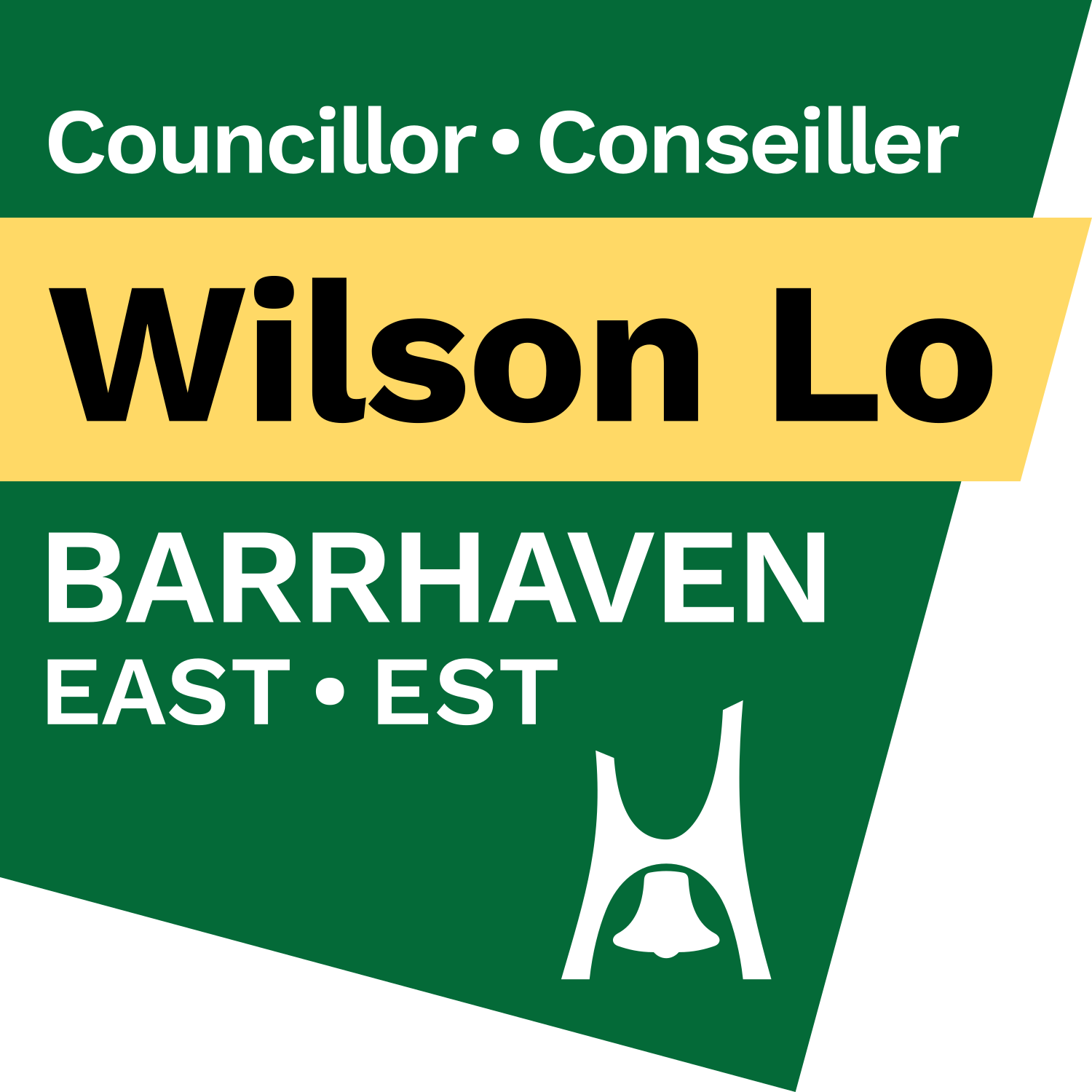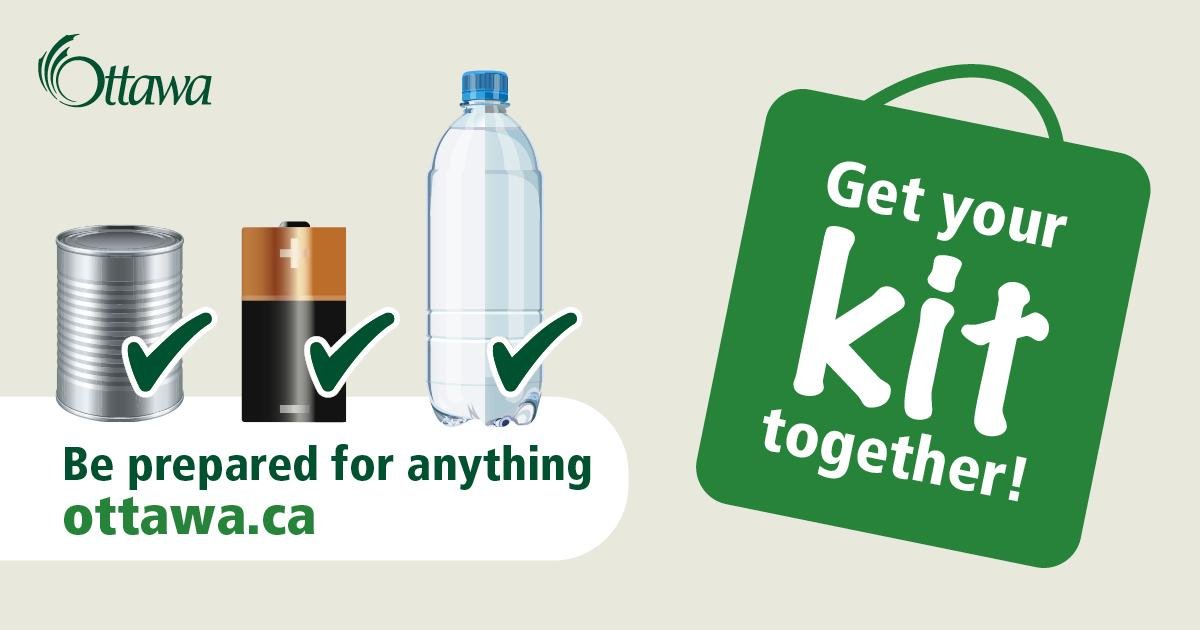Be prepared, know your risks if there’s an emergency
Over the past several years, Ottawa residents, businesses and visitors have experienced first-hand several different types of weather emergencies. For example, tornadoes and a derecho have damaged homes, uprooted trees, and downed power lines; flooding in 2017, 2019 and 2023 caused damage to water-side communities; and, a freezing rainstorm caused branches and power lines to freeze, impacting hydro infrastructure and leaving many residents in the dark.
Emergency Preparedness Week runs from May 5 to 11 and is a good time to reflect on lessons learned and better prepare for the next emergency.
In the event of an emergency, everyone should aim to be able to take care of themselves and their families for up to 3 days (or 72 hours), at least. Read on for some guidelines that can help you get started.
Emergency kit – supplies for 72 hours
One of the easiest tools you can prepare in advance is an emergency preparedness kit. Some items that are useful for your kit can include:
Two litres of drinking water per person per day
Battery-operated or crank radio
Power banks for wireless charging
Flashlights and extra batteries
Medication
Non-perishable, ready-to-eat canned foods and a manual can opener (note: be sure to rotate the food in your emergency kit to keep it fresh)
Pet food for our family members from the animal world
Blankets or sleeping bags
Copies of important documents, such as insurance cards, birth certificates, and passports in a waterproof and portable container
Clothing and footwear (one change per person; more for children)
Toilet paper and other personal hygiene supplies
First aid kit
It is also a good idea to be prepared by ensuring you have:
A paper or digital note with a list of contact names and information of family members, daycares, schools and other important contacts
Trusted people in place as an emergency backup to pick up your children from school or daycare, check in with vulnerable family members and neighbors and take care of your pets
Emergency money or a Presto card on-hand for transportation home
A small quantity of your prescriptions on-hand, should you be unable to get home to take them, or a list of prescriptions so that they can be refilled at a pharmacy
Know how to stay up-to-date with the latest information and warnings
During any emergency, it is important to stay informed. You can follow the City’s website at ottawa.ca and follow our social media channels on X (formerly Twitter) and Facebook. Also, many weather apps are available for your devices that will provide you with the latest severe weather watches and warnings – giving you advance notice to prepare or seek shelter.
Many emergencies – such as severe weather events – can cut off our power for hours or even days.
That’s why it is important to have a crank radio or a battery-operated radio with a supply of extra batteries. While the Internet and social media dominate our landscape, the City also uses traditional mainstream media – like local radio stations – to help broadcast messaging and keep you informed.
For more ways to stay informed before, during and after an emergency, visit our Information sources for emergencies page.
On a well? Fill your bathtub or containers with water – just in case
If your home operates on well water and you see or hear weather warnings involving high winds, severe lightning, or ice, fill your bathtub or some containers with tap water – just in case the power the goes out. This water can be used to flush toilets, for example.
Be sure gas generators and barbecues operate outside of your home
Many residents have purchased gas-powered generators to keep such items as fridges and sump pumps running and to charge their handheld devices. Residents may also rely on gas barbecues to boil water and prepare meals.
But remember, gas generators and barbecues cannot run inside your garage or house. Fumes and exhaust from these devices can poison you and your family with deadly carbon monoxide. Keep them running outside.
Social connections and personal supports
Think of your family, friends, neighbours, and colleagues in your personal and professional networks. They represent people who can help and for whom you should have contact information on hand.
Also, during emergencies, you can act as a vital line for those who need assistance or important information. Contact your neighbours, friends and family members – especially those who are vulnerable – to see if they need assistance and update them with the latest information and instructions.
In an emergency, know who to call
In an emergency, you need to know who to call and when. Here are some numbers to remember and keep on-hand:
9-1-1 - For life-threatening emergencies
2-1-1 - For information on provincial government and local community-based health and social services including food
3-1-1 - For City of Ottawa services such as garbage collection, by-laws, forestry services and childcare services
8-1-1 – For non-emergency health advice and help navigating health services in Ontario
Power outages
613-738-0188 - For inquiries to Hydro Ottawa about power outages
1-800-434-1235 - For inquiries to Hydro One about power outages
Preparing ahead at home saves time and stress during emergencies. Please refer to the City’s emergency preparedness site for more information.
For more information on City programs and services, visit ottawa.ca, call 3-1-1 (TTY: 613-580-2401) or 613-580-2400 to contact the City using Canada Video Relay Service. You can also connect with us through Facebook, X (formerly Twitter) and Instagram.


